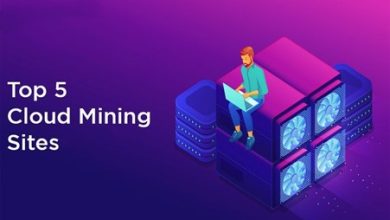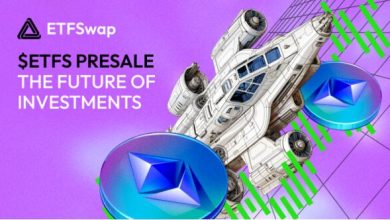Tech, Transformation, and Transactions: A Conversation with Expedia’s Ajinkya Ghadge

In our ongoing series of profiles featuring industry experts, we had the opportunity to sit down with Ajinkya Ghadge, a Software Development Engineering Lead with Expedia Group. Ajinkya brings a wealth of experience in building robust payment processing systems and leading engineering teams. Let’s dive into his journey, insights, and advice for aspiring engineers.
Can you tell us a bit about your background and what drew you to software engineering?
My journey into software engineering started during my undergraduate studies at the University of Mumbai, where I earned a bachelor’s degree in computer science. I was always fascinated by how technology can solve complex problems and improve lives. This passion led me to pursue a master’s in computer science at the University of Texas at Arlington, where I had the opportunity to work on some groundbreaking projects, including a few funded by the National Science Foundation. The transition from robotics and AI to handling payments at Expedia was driven by the domain’s global impact. I was inspired by the chance to influence how millions experience travel, enhancing not just a single aspect but the entire payment process worldwide. This shift presented a new challenge and an opportunity to apply my AI background to solve complex, real-world problems on a much larger scale.
How have your experiences across different technology stacks, from robotics to AI/ML and now payment systems, influenced you?
Working with different technology stacks has taught me the importance of adaptability and understanding. In robotics, precision and safety were crucial. In AI and machine learning, the focus was on prediction accuracy and data integrity. Now, in payment systems, security and reliability are key. I’ve learned to value the unique challenges of each field and the importance of diverse teams collaborating and innovating.
What does your role at Expedia entail?
At Expedia, I’m one of the lead engineers in the Pay-In ecosystem of Expedia Payment Services. Our team is responsible for building fault-tolerant services to process payments worth over $100 billion annually across 155 countries.
Can you describe a project you’ve led that you consider transformative for Expedia’s payment systems and what made it successful?
One of the recent projects I led was the migration of 14 services within our Pay-In flow to the Expedia Common Container Runtime Platform. This migration allowed for seamless deployments across multiple compute zones, significantly reducing deployment friction and support costs. Another key project was the service to build a Payment Authentication Service (PAS) to meet the PSD2 regulations in Europe for strong customer authentication (SCA). PAS processes all of Expedia traffic that requires SCA.
What are the biggest challenges you face when implementing new technologies in large-scale systems like those at Expedia, and how do you overcome them?
Integrating new technologies into Expedia’s large-scale systems presents a unique set of challenges, notably ensuring seamless integration without disrupting the service millions depend on. Our strategy to mitigate these risks includes starting with small, isolated tests to gauge the impact of a major change that is released to production. We precede these roll-outs with robust testing and thorough code reviews and extensive consultations with peers to ensure every potential issue is addressed. This careful, step-by-step approach helps us to introduce new technology and ensure it delivers real value to our customers and aligns with our strategic goals.
How do you select a technology solution for a particular project and how do you stay updated with the latest developments in your field?
Selecting the appropriate technology for a project is critical and hinges on various project-specific factors. I look at scalability requirements, security needs, the expertise of our team, and the expected lifespan of the service. Essentially, the decision involves aligning the technology with both the immediate challenges of the project and the long-term capabilities of our team. Staying updated is a crucial need in tech, I try to keep myself updated by reading the latest industry blogs, articles, journals, and networking with other industry professionals.
What advice would you give to someone aspiring to a career in software engineering?
My advice would be to build a strong foundation on the basics and fundamentals of computer science. Try to land an internship and work on open-source projects early on in the career to get a good hand on feel for what it’s like to be working on large scale systems. Always be open to adapting changes and have the mindset to learn new technologies. Find a mentor in the industry who is senior to you, especially with someone you can be free to explore and question. Lastly, it’s equally important to have a good set of soft skills to communicate, build relationships in the industry.
Looking back at your career, is there a particular moment or project that provided you with critical insights or lessons that you apply to your work today?
A defining moment in my career came during an early project at Expedia involving an overhaul of our payment gateway integration. The challenge was immense, given the diverse regulations and expectations across global markets we serve. Through this project, I learned the critical importance of adaptability and the need to consider local nuances when deploying global technology solutions. These insights now shape my approach to every project, ensuring our technological solutions are strong and adaptable to meet diverse local requirements. This experience has been invaluable in guiding how we plan and execute projects, making sure that our solutions are both globally efficient and locally relevant.
What’s next for you in your career?
Looking ahead, I aim to further my expertise in cloud computing and AI and contribute to building more innovative and scalable solutions at Expedia. I’m also passionate about mentoring the next generation of engineers and hope to take on more leadership roles that allow me to have a broader impact on the organization and the tech community.
Can you share a fun fact about yourself?
Sure! Aside from my passion for technology, I enjoy working out, reading, playing soccer, and would always be down for a round of golf. I also listen to music a lot and explore different music genres. It’s a great way for me to relax and unwind.





